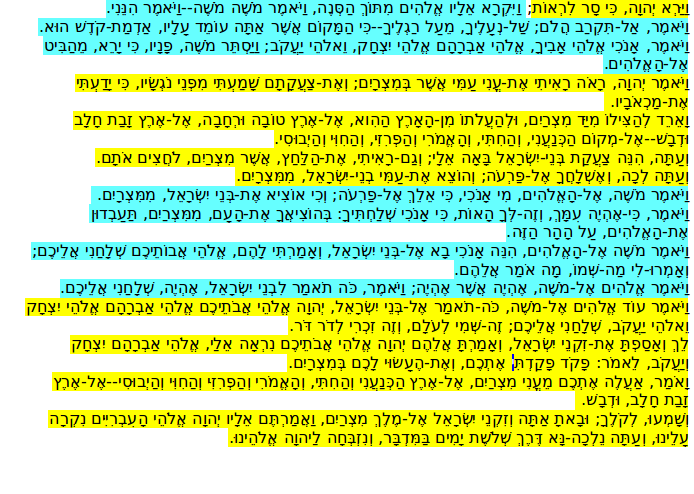In Shemot 3:6 HaShem introduces Himself to Moshe and says: 'I am Elohei Avicha, Elohei Avraham, Elohei Yitzchak and Elohei Ya'akov'. In verse 13, Moshe asks HaShem which name he should tell the people and HaShem replies: 'Ehyeh Asher Ehyeh,' and tells him he should tell them that He is Ehyeh, and that He is HaShem, Elohei Avraham, Elohei Yitzchak and Elohei Ya'akov, and that this is His name for eternity from generation to generation. And even to the Ziknei Israel Moshe has to say that He is HaShem Elohei Avoteichem, Elohei Avraham, Yitzchak v'Ya'akov. Eventually Moshe has to tell Pharao that He is HaShem Elohei HaIvriyim. And to the Israelites Moshe has to show different signs in order for them to believe that He is indeed HaShem Elohei Avotam, Elohei Avraham, Elohei Yitzchak v'Elohei Ya'akov.
In Shemot 4:31 it says that the people believed that He was HaShem. But after Moshe visit to Pharao he gave the people harsh labour and then something changed..
- Why is it that Moshe has to introduce HaShem? Didn't the people know who HaShem was?
- And why does it seems like Moshe has to reintroduce HaShem to the people in Shemot 6:6-7?
- And last but not least, when was it that the people knew HaShem?

